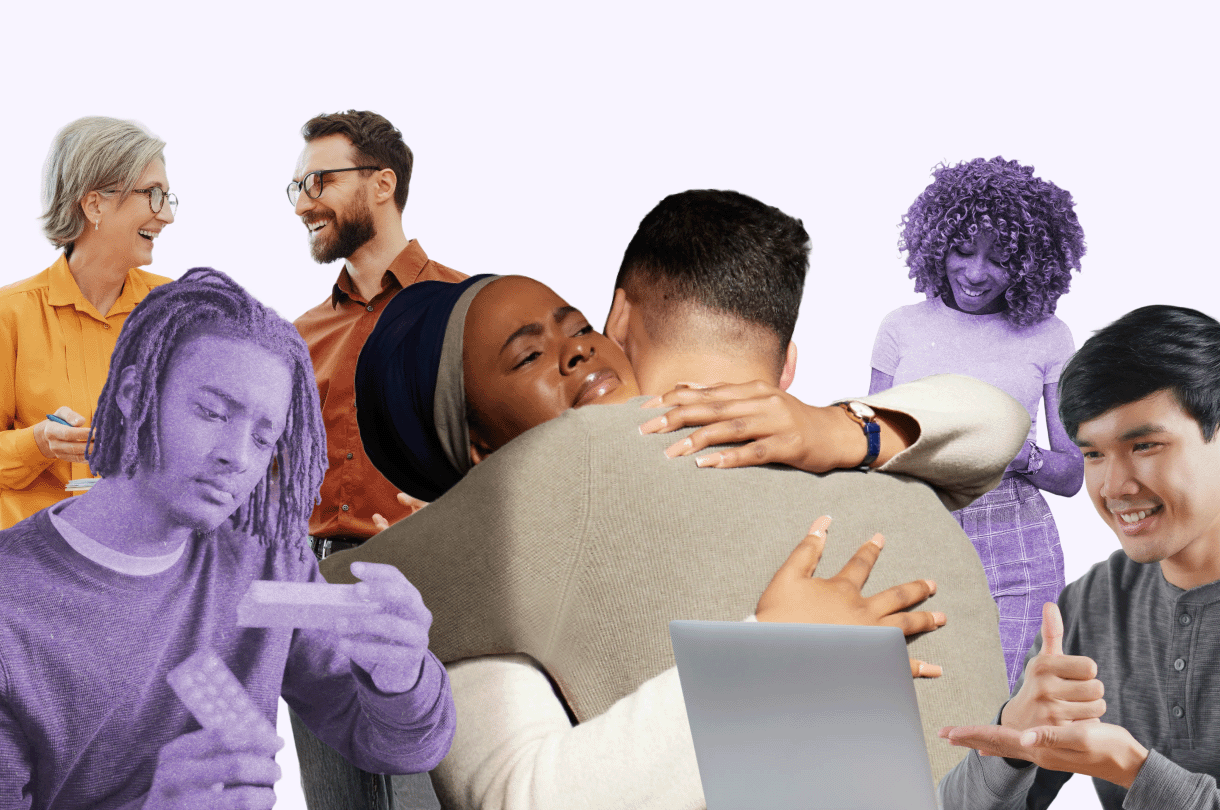Imagine being an employee and discovering that your organization is throwing a large, company-wide party to celebrate a milestone. Is your immediate reaction excitement or dread at the prospect of socializing in large groups for an evening?
If you need to start emotionally preparing yourself for such an event, you’re probably an introvert. If you’re feeling excited, you’re likely an extrovert—and I especially urge you to keep reading to gain insight into what it’s like to be on the other end of the personality continuum.
Introversion is a broad personality trait, existing on a spectrum of behaviors and feelings. Although individuals can fall at different points, extroverted traits are typically valued higher in the workplace.
Being an introvert at work is difficult, as many organizations are structured to accommodate the needs of extroverted employees more than introverted personality types. Extroverts are promoted faster, rated more positively by their coworkers, and earn more. There’s often limited space for introverts to thrive.
This is especially true for Black individuals and even more so for Black women, who also have to navigate workplace stereotypes.
Workplaces are often harmful to introverted Black employees
Psychological safety is regularly missing for introverted Black employees who have to cloak themselves in a different persona at work to be accepted and not seen as standoffish. This can be exhausting.
In particular, Black women who allow their introversion to come through at work are habitually viewed as disconnected, unengaged, or not team players. The reality is often that they are actually:
- More comfortable voicing their opinions in a one-on-one setting or anonymously
- Prone to quiet introspection about a problem
- In need of time to process
- In need of alone time to recharge
When Black introversion is penalized, it can narrow our pathways for progression within a company.
Black introverts experience particular mental health impacts
Black employees know from day one that we cannot be our genuine selves in the workplace. This means we are already living with the impact of only bringing 40% of ourselves to work with us every day.
Above all, this is tiring and can create burnout and disengagement for introverted Black employees operating in workplaces built for extroverts. Introverted employees don’t stop being introverted when they step into the workplace. Instead, we pretend to be extroverted to fit in, which is draining.
This process makes me think of weathering. This phrase is used in the sciences to denote when a rock is weakened or disintegrated due to physical forces—the physiological impacts of racism weather Black women in particular.
In workplaces, this process can be cyclical for Black introverts. They become tired and weathered from masking their identities at work and pull back into themselves to recoup energy. When this is misinterpreted as disengagement, it can cause more negative feedback to be directed at them.
6 workplace strategies for supporting introverts
Workplace leaders can change the harmful workplace dynamics around introversion in many ways, generating psychological safety and creating space for all personality types to thrive.
Leaders need to understand and remember that introverts love autonomy, one-on-one conversations, and deep work. Allowing them opportunities for more of those at work can energize and engage introverted employees, making them feel more valued than any form of public recognition.
Here are additional strategies for HR and People leaders to build workplace cultures where introverts can exist without wearing the mask of extroversion—while also celebrated for the skills they bring to the office.
Making space for introverted voices in the workplace
As with most workplace initiatives, creating psychological safety starts with leaders building personal relationships with their employees. Getting to know how people work best is a powerful strategy.
For example, a People leader might seek information about and consider whether their team members:
- Prefer presenting ideas in group settings, one-on-one, or in writing.
- Would like scheduled time for quiet and contemplation in meetings. This is also a good brainstorming tactic for everyone.
- Want to be recognized in a group setting or privately.
- Prefer giving feedback in group sessions, anonymously, one-on-one, or in writing.
- Are comfortable speaking out. If not, ask what would make them comfortable enough to voice their opinion?
- Would like time for introspection after completing a task, before jumping into conversation or meetings.
Workplace leaders who ask these questions might perceive Black introverts’ behavior differently.
Instead of thinking someone is disengaged, leaders can acknowledge that the individual is an introvert and may engage more quietly than their extroverted teammates. Or, perhaps they are burnt out from being introverted in a workplace designed primarily for extroverts.
Higher-level strategies for leaders
Along with relationship building and elevating introverted voices, there are additional ways to create space for introverted employees that leverage their strengths, including implementing:
- Skip level meetings. Introverts usually shine in one-on-one settings, so allow them to meet quarterly with their manager’s manager. This gives introverts face time with higher-ups in the company when their voices might not normally be heard at that level. Black introverts, in particular, usually don’t get face time with leadership.
- A rethinking of evaluations. Instead of, “You don’t seem like you care what’s going on,” try, “What would make you feel comfortable sharing your opinions?” or “Is there someone better suited for you to talk to than me?”
- Ways of working document. This could include different styles of working for introverts and extroverts.
- Anonymous feedback or one-on-one feedback. I’m never going to ask questions or give feedback in a public forum, but I will ask those questions or give that feedback if given the opportunity in a private, anonymous, or one-on-one format.
- Matching up introverts with a safe person/mentor. A manager or supervisor might ask, “Who is a safe person for you to talk to?”
Now that we’ve covered strategies for individual supervisors and managers, let’s talk about how HR leaders can contribute to creating psychological safety for Black introverts.
Actionable steps and strategies for HR leaders
Here’s a concrete example: performance reviews are often subject to individual biases and rely on subjective criteria. Black women are much more likely to be evaluated on personality traits and given non-actionable feedback. In contrast, White men are most likely to be assessed on performance and given actionable feedback.
A Black introverted employee is even less likely to be evaluated on metrics and output, not their personality traits. This is one area where HR leaders can help make a significant difference by training managers to assess based on metrics and not penalize employees for introversion.
Next, I’d advise making the workplace more introvert-friendly by:
- Pushing back against the assumption that loud, visible people do the most work, and quiet employees must not be doing as much because they are lower-key about it.
- Implementing calm Fridays—a meeting-free day for employees to focus on deep work and recharge their social batteries. Everyone benefits from deep work. But without opportunities, employees are run ragged, especially introverted employees.
- Understanding the pressures that come from making it mandatory to attend company-wide events. Parties or social gatherings might seem like a reward for employees, but for introverts, they’re often draining and even something to dread.
- Offering a comprehensive mental health solution to support introverts, giving them coping skills for surviving in an extrovert-dominated world.
These are actionable steps and strategies leaders can implement to make the workplace friendlier for introverts. This will, by default, impact Black introverts under the most pressure to hide their introversion.
A vision of the future
In my mind, the ideal future workplace is big enough to hold all my intersecting identities as a woman, Black person, and introvert. These facets of myself are accepted, valued, and leveraged to be mentally whole and healthy.
In this future, I can bring my whole self to work and not be penalized for it. I can progress in my career by working in a role that highlights and accentuates my strengths.
As far as professional lives go, I don’t think many Black employees, especially introverts, feel entirely accepted and celebrated for what they bring to the table.
For HR and other workplace leaders, Black introverts have much to offer your company. But they’re often overlooked, exhausted, and disenchanted.
For my fellow Black introverts—know it’s okay to be introverted, even though the workplace may be signaling otherwise.
To create an environment of diversity, inclusion, and belonging, it’s imperative for leaders and colleagues to understand and proactively address microaggressions in the workplace.











.png)





.png)
.png)



















